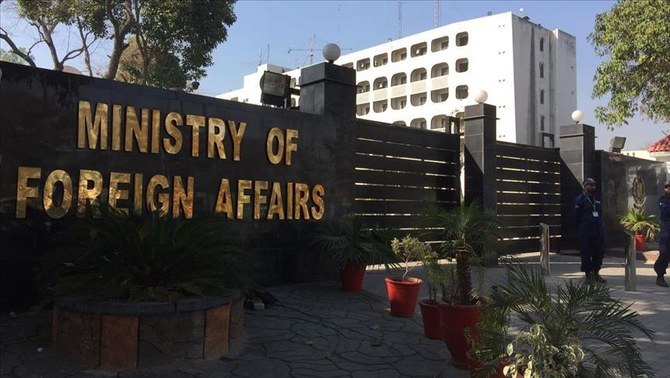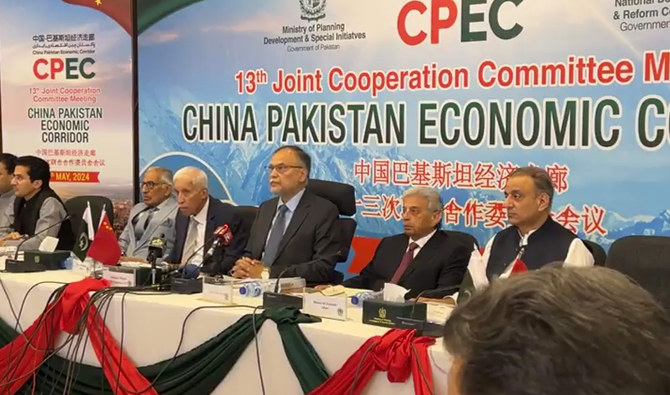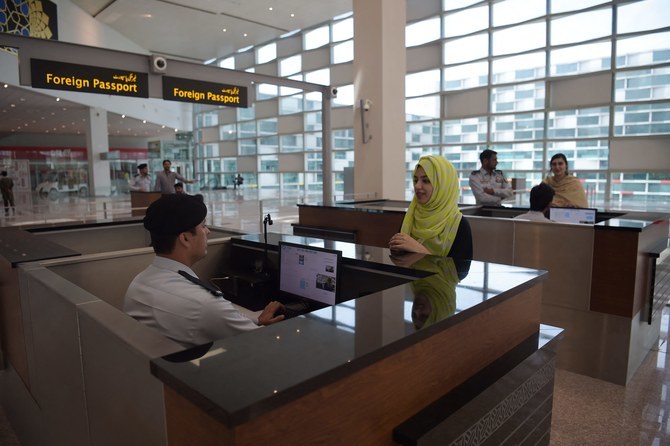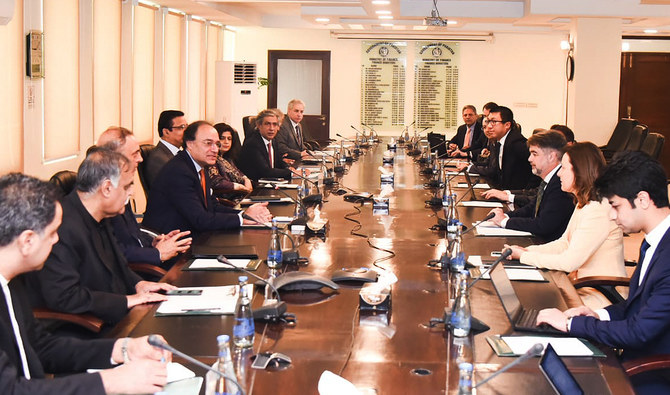ISLAMABAD: Islamabad on Saturday denounced “provocative remarks” made by Indian Defense Minister Rajnath Singh that India would enter Pakistan to kill anyone who escaped over the border after trying to carry out terror activities in the neighboring country.
The minister’s comments came a day after Britain’s Guardian newspaper published a report saying the Indian government had killed about 20 people in Pakistan since 2020 as part of a broader plan to eliminate militants residing on foreign soil. Pakistan denies harboring militants.
“On 25 January 2024, Pakistan provided irrefutable evidence, elucidating India’s campaign of extrajudicial and transnational assassinations on Pakistani soil,” the foreign office in Islamabad said in a statement responding to Singh’s remarks.
“India’s assertion of its preparedness to extra-judicially execute more civilians, arbitrarily pronounced as ‘terrorists,’ inside Pakistan constitutes a clear admission of culpability. It is imperative for the international community to hold India accountable for its heinous and illegal actions.”
The foreign office said Pakistan was “resolute in its intent and ability to safeguard its sovereignty against any act of aggression,” referring to an incident when Pakistan downed an Indian jet that entered Pakistani airspace in February 2019, saying it had “laid bare India’s hollow claims of military superiority.”
The foreign office said Singh’s comments were part of the Prime Minister Narendra Modi government’s usual “hateful rhetoric to fuel hyper-nationalistic sentiments, unapologetically exploiting such discourse for electoral gains.”
“Such myopic and irresponsible behavior not only undermines regional peace but also impedes the prospects of constructive engagement in the long term,” Islamabad said.
On Friday, Singh told an Indian news channel in response to questions:
“If they [militants] run away to Pakistan, we will enter Pakistan to kill them … India always wants to maintain good relations with its neighboring countries ... But if anyone shows India the angry eyes again and again, comes to India and tries to promote terrorist activities, we will not spare them.”
Relations between Pakistan and India have worsened since a 2019 suicide bombing of an Indian military convoy in Kashmir that new Delhi said could be traced to Pakistan-based militants, leading it to carry out an airstrike on what it said was a militant base in Pakistan. Pakistan denied state complicity in the bombing, as well that India had struck a terror hideout.
Pakistan said earlier this year it had credible evidence linking Indian agents to the killing of two of its citizens on its soil, which India called “false and malicious” propaganda.
The report in the Guardian comes months after Canada and the US accused India of killing or attempting to kill people in those countries. Canada said in September it was pursuing “credible allegations” linking India to the death of a Sikh separatist leader shot dead in June — claims that India said were “absurd and motivated.”
A top Canadian official said in January that India was cooperating in the matter and bilateral ties were improving.
The US similarly said in November that it had thwarted an Indian plot to kill a Sikh separatist leader and announced charges against a person it said had worked with India to orchestrate the attempted murder.
Modi has said India will investigate any information it receives on the matter.
With inputs from Reuters
















